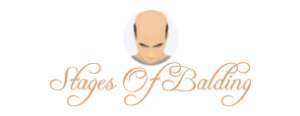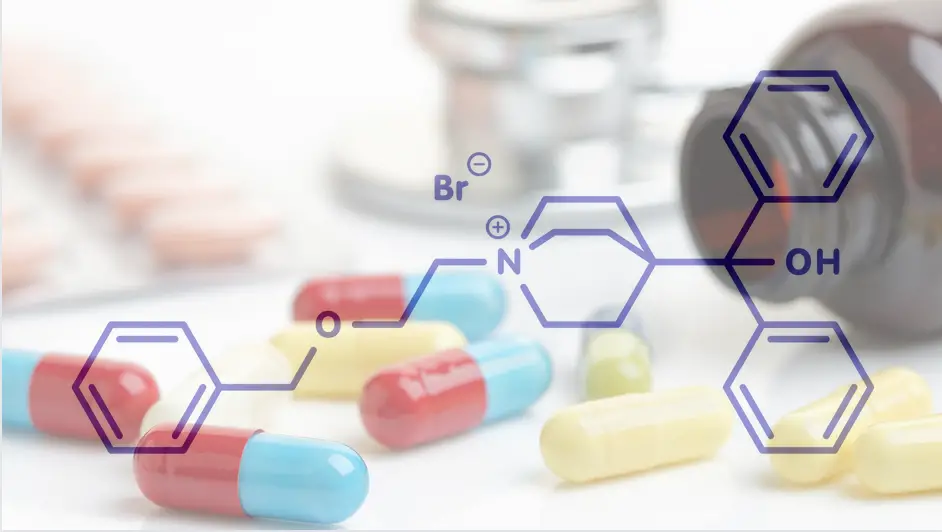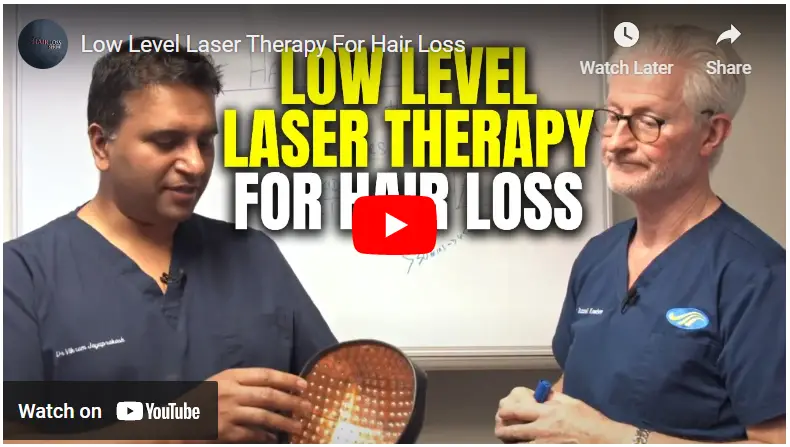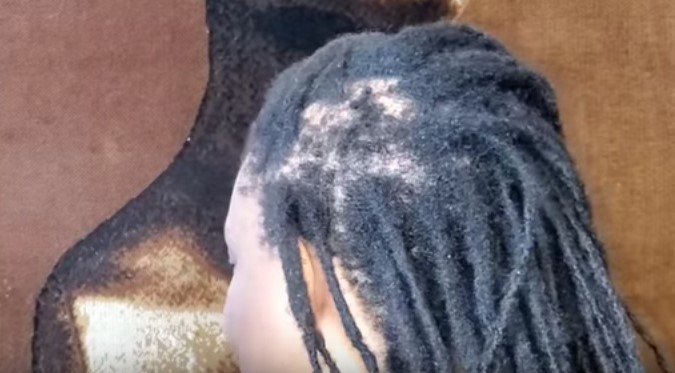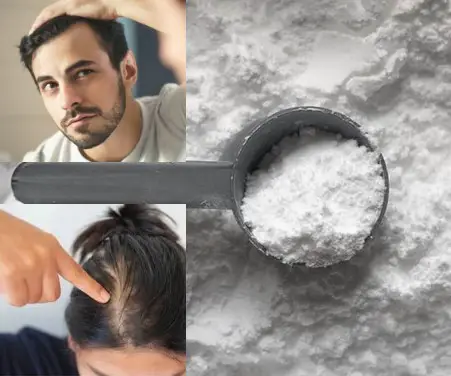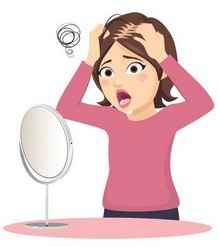When it comes to the effects of blocking DHT, there are a few things that everyone should know. DHT (dihydrotestosterone) is a hormone produced by the body that can have a variety of effects, and when it is blocked, it can cause certain side effects. In this blog post, we will discuss what those side effects are and how they can be managed. We will also discuss the potential benefits of blocking DHT and why it is sometimes recommended. By the end of this post, you should have a better understanding of the effects of blocking DHT and how you can best manage them.
In order to effectively tackle the cause of hair loss in both men and women, DHT blockers are among the most efficient treatments available. Nonetheless, one might ask if there are any risks associated with this medication, as it is self-administered.
What is DHT?
DHT is a type of androgen, or male sex hormone, and is the most potent androgen produced by the body. Unlike testosterone, DHT is a pure androgen hormone and cannot convert into estrogen. DHT is produced as a byproduct of testosterone through the action of an enzyme called 5-alpha-reductase.
DHT plays a key role in producing male genitalia during fetal development and is responsible for features such as body hair, facial hair, and a deep voice during childhood and puberty. In essence, it is one of the hormones that makes a man male during the early phases of life.
Does blocking DHT cause side effects?
DHT blockers do have side effects. When taking DHT blocker medications, there are potential side effects such as enlarged breasts, erectile dysfunction, and a decrease in libido. For skin treatments, using shampoos is a relatively safe option with a low probability of resulting in dermatitis. Taking vitamin supplements or naturally derived DHT blockers are considered to be low risk with fewer side effects, but unfortunately may not be as effective for some people.
The most important things you must know are:
- About 1.5 percent of those who take Finasteride are afflicted by adverse consequences.
- A tiny percentage of people could be affected, even if they quit taking the medication.
- Topical DHT blocker shampoos may cause irritation to the skin.
- Vitamins, as well as natural DHT blockers, are low risk, but they are rarely effective in the prevention of hair loss.
What are the side effects of blocking DHT?
When we talk about blocking DHT in this context, we’re talking about approved medications that block testosterone’s conversion to DHT. There are alternative options that have lesser side effects, like natural and topical medications which I’ll talk about later.
A few of the possible adverse effects associated with the use of DHT blockers are:
- Erectile dysfunction
- Reduced the amount of libido
- Ejac·u·la·tory dysfunction either decreased amount of ejac·u·la·te, or less concentrated or more ‘watery.’ It can also cause fertility issues.
There are other sides effects that aren’t as frequent also and include:
- Pain in the testicular region
- Gynecomastia: an increase in sensitivity and growth of the breasts
- Depression
- Acute allergic reaction
- Male breast cancer
It’s important to note that these are all possible adverse effects, and the majority of people who use DHT blockers will not be affected.
Naturally, the potential risk of these could be enough to discourage you from taking medicine. It’s an individual choice – and while I’d always suggest alternative options that are more natural, like shaving your head, certain individuals may not be receptive to this and prefer the drug route to maintain their hair looking good.
Can DHT blockers be harmful?
In some instances, taking a DHT blocker may be risky due to certain long-term effects that can be irreversible. Studies show that a select few people taking Finasteride may experience long-term sexual issues, such as erectile dysfunction, reduced libido, and others, even after ceasing use for numerous years.
It is possible for this to result in other chronic conditions, including psychological and neurological adverse effects like chronic depression, that can result in significant trauma. I’ve read a Reddit discussion from a user who states they have taken Finasteride and then experienced suicidal thoughts because of the harm it caused to their endocrine system.
The term used by patients is “Post-Finasteride Syndrome,” or PFS. It is an expression created by sufferers and is not a term that is officially recognized. In fact, PFS has been described as “ill-defined and controversial” by one of the most prestigious medical journals around the globe, The BMJ.
It’s obvious that DHT blockers offer the chance to harm. However, they can be harmful in very rare instances.
But, this is talking about the lasting damage that is caused by people who discontinue taking the medication, which is defined as harm due to an irreparable change in the body.
This isn’t a complete picture because it does not consider the fact that Finasteride isn’t a treatment for hair loss. If you’re taking Finasteride, it is taking it with the intention of using it for the remainder of your existence.
If you experience the negative side effects triggered by the medication, they’re also permanent until you decide to quit taking the drug. Most people will end the adverse effects; therefore, technically, the medication isn’t harmful. However, would you like to suffer from these sexual side effects for the rest of your life, even If you’re among those who are affected?
What are the common side effects of DHT-blocking agents?
It has been estimated that less than 1% of cases involve issues such as an inability to achieve an erection, loss of libido, or a change in ejac·u·la·te consistency, which are generally known as the side effects of DHT blockers. However, the FDA label reports that this number is “≥1%”, which means greater than or equal to 1%.
Its label contains more information and provides the percentage of patients who suffer from various ailments within the first year after starting the medication, based on clinical studies.
- Decreased libido – 1.8%
- Erectile dysfunction – 1.3%
- Ejac·u·la·tion disorder – 1.2%
- The volume of ejac·u·la·te decreased by 0.8 percent
It’s also important to note that 1.2 percent of those who took the drug decided to stop using it within the first year due to adverse sexual side consequences.
The FDA’s label does mention the possibility of longer-term or more severe adverse effects, but it states that the disclosure is voluntary and, therefore, shouldn’t be considered an accurate estimate. In the UK, the NHS is in UK states there are more significant side effects that affect one in 1000 who take the drug.
For reference, it is estimated that there are 2.2 million individuals who take Finasteride across the US each year. If the NHS’s estimation is correct, this means approximately 2,200 people in the US suffer from the more serious adverse consequences of the drug.
Do DHT-blocking shampoos cause side effects?
DHT-blocking shampoo typically has fewer side effects than other medication choices, such as potential skin irritation, which is rarely encountered. Although it is possible for Minoxidil, the primary DHT-blocking component, to reduce blood pressure in exceptional instances, this usually occurs when the skin has been damaged.
The main risks associated with using DHT-blocking shampoos are the possibility that your scalp will be dry or that the hair to lose oils, but this won’t typically occur with the majority of users. It’s still important to treat your hair after you’ve washed it using Minoxidil shampoo to ensure it’s secured. In the event that you don’t, the shampoo you’re applying for hair protection might actually harm it.
The likelihood for the shampoos to cause issues in relation to blood pressure is uncommon. If they are applied to the skin (any topically applied DHT blocker is that is applied to the hair or the skin and hair. Hence shampoos are referred to as a treatment for the skin), the Minoxidil will not be in the bloodstream, nor isn’t a problem.
The sole thing to take into consideration is any cuts to your scalp that allow it to enter. However, this is only an issue for those who suffer from cardiovascular disease; however, if this is the case, then it’s best to talk with your physician prior to using DHT-blocking shampoo.
DHT-blocking vitamins’ side effects
There aren’t any major DHT-blocking vitamin side effects you should be concerned about as long as you adhere to the proper dosage.
The vitamins that are claimed to block DHT are different from Finasteride. They do not suffer from the same adverse consequences. However, they are far less effective at the prevention of hair loss.
To understand this, I’ll need to briefly describe the problems surrounding DHT. DHT is one of the hormones that are an offshoot from testosterone – it is created by the transformation of testosterone and can affect several of the sexual activities of testosterone, but at a greater level.
The issue with DHT is that when it is elevated, it may adhere to hair follicles and result in them weakening and then ceasing to exist.
Finasteride slows down testosterone’s conversion into DHT, which means it is a direct and tangible effect.
DHT-blocking supplements don’t hinder the conversion process but claim to prevent DHT from sticking to hair follicles generally by promoting healthy blood flow as well as improving other relevant health measures.
The best part is the fact that it has no negative adverse consequences. Vitamins aren’t the same, and there’s no one-size-fits-all description of what the adverse effects are, but vitamin supplements typically enhance your health.
However, they’re unlikely to prove as efficient in cutting down hair loss as Finasteride simply because of the way they function.
Naturally blocking DHT side effects.
Naturally blocking DHT with certain food ingredients will not cause adverse side effects; however, it can have only a small effect on hair loss. The majority of individuals who state they are successful by the use of natural DHT blockers are doing it along with medications, and this is the main reason for hairline growth.
Some of the food items that experts recommend to stop DHT and combat hair loss include:
- Green tea
- Onions
- Pumpkin seeds
- Turmeric
- Berries
- Avocado
- Edamame beans
- Coconut oil
- Almonds
- Eggs
- Walnuts
- White mushrooms
Eggs, white mushrooms, and avocados have all been said to have DHT-blocking properties.
None of these food items have been proven medically safe to prevent hair loss, and success stories are mostly anecdotal. They basically provide nutrients that help boost blood flow, strengthen the hair follicles and enhance your body’s functions, but they aren’t able to hinder DHT.
If you’re concerned about the adverse side effects of DHT blockers but do not desire to go through surgical procedures or shave your head, you can consider incorporating these food for blocking DHT into your daily regimen. But I wouldn’t recommend that you expect results that are guaranteed.
Summary – Do you think blocking DHT is an effective idea?
If blocking DHT is an effective option or not is subjective. However, I do know why people turn to medication to stop hair loss. The idea of surgery or even embracing baldness or shaving your head could be a source of stress for you, and you might wish to explore all options.
My suggestion is to think about the possible side effects when you are planning to take DHT-blocking medications, especially as it is possible to sustain permanent damage in the case of very few instances.
Everyone has the right to their personal choices about how to handle hair loss, so I don’t suggest you not take medication.
I’ll just suggest that you must be aware of any potential negative consequences and consider all possibilities before committing to the treatment, particularly since the medication is designed to last for a lifetime.
Do not remain in a state of balding in constant worry about whether your hair loss is getting worse and becoming more obvious. If you’re not certain what the best path to take read my article to help you determine the most effective course of action:
Herbs That Stimulate Hair Growth Pdf
Did you try DHT blockers? Tell me what you think about it in the comments section below.
- AI Powered Bald Filter Online 2024: See Yourself with No Hair! - January 19, 2024
- Harklinikken Bad Reviews 2024: Analyzing Negative Feedbacks - January 18, 2024
- How to Get the Alex Eubank Hair | Step-By-Step Tutorial 2024 - January 18, 2024
